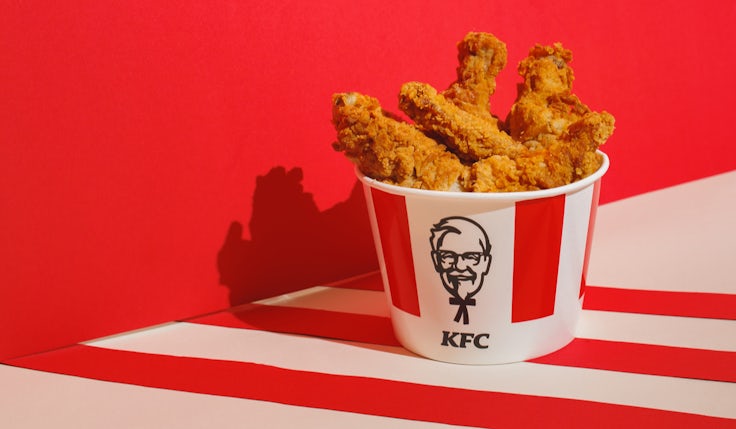Experiences make memories – it’s time for brands to be bold again
Experiential marketing has been on hold in the pandemic but, while expensive to invest in, experiences are important to consumers, so brands should let their imaginations fly again.

In so many categories experiences are an important element of brand building and a significant proportion of marketing budgets.
Experiences range from basic sampling, product demonstrations and mentoring right through to partnerships with festivals, licensing, and fully owned brand homes and heritage centres – the latter of which are profit generating in their own right rather than marketing costs.
Though much energy has been spent on debating how much brand owners should invest in marketing during the pandemic, smart brand owners have been using this time to think about the future of digital and real-world experiences, and also how they can co-exist.
Experiences matter for brands – they are multisensory and build strong memories.
Investing in experiences can be expensive, especially versus media, but done brilliantly that investment pays back – particularly the more ambitious brand experiences at scale that create a vivid emotional response and change the way an audience relates to a brand for the long term.
In a world with such pent-up desire for real world connection and experiences, these are the brands which will flourish as restrictions lift and consumers are able to socialise in person once again.
Experiences matter for brands – they are multisensory and build strong memories. Brands must actively consider the combinations of sounds, smells and textures that enhance the usual visual elements, and seek to bring these elements through into other brand touchpoints.
Make experiences communal again
Not being able to socialise with friends and family has reminded us why collective experiences are so memorable and long-lasting. Think about the hum and roar of a sports crowd or how you seek confirmation or reassurance from others when trying something new. We don’t just experience our own sensations and emotions but also those of the people around us, intensifying the impact. As in-person experiences begin to return, brands still need to consider how to make digital experiences communal and interactive.
Our memories are made from our experiences, and therefore interlinked with our sense of self or identity. Great brand experiences consider how they might be relevant to people’s broader lives and culture, even offering valuable knowledge, emotional impact, talkability, social cache or status. Consider as much your consumer and the things that make up their identity as you do your own brand when designing experiences – this is particularly critical to ensure work in sport or music is distinctive, relevant to the brand and audience, and not just sponsored entertainment.
The pandemic has forced brands to shift from insight to intelligence
I’ve been impressed with how brands have taken some of these principles into their digital work over the last 18 months: when real-world football and rugby weren’t there, partnerships in esports and Twitch stepped forward. And in beauty and fashion, Auroboros, Melissa Shoes, and others elevated the shopping experience with immersive virtual online spaces, while Dazed Beauty with Selfridges went further by blending real world and digital into ‘physigital’ spaces.
Alternative spaces like NFTs (‘non-fungible tokens’, which certify ownership of a piece of digital content) are all the rage but the jury is out as to whether brands will be able to use their exclusivity meaningfully. Personalisation at scale, on the other hand, is booming in confectionary with M&Ms and a raft of Mondelez brands including Toblerone and Twirl. And online, car brands such as Audi and Volvo are becoming more and more adept at immersing prospective buyers, who now rarely visit showrooms.
With restrictions on people’s lives, experimentation, escapism and self-expression have been critical drivers for what consumers have sought from experiences alongside the typical need for exploration. This has been fuelling subscription services, digitally born brands and, in alcohol, a boom for online cocktail recipes and demos.
Return to real experiences
For Guinness, as in-home consumption grew, we at Diageo were able to leverage the consumer-generated videos of people experimenting with their own version of creating a great Guinness pour at home – from upending the can inside the glass, to activating the nitrogen in the beer using the pulse of a jewellery cleaner. Simple stuff like showing a Guinness can poured into two Ikea glasses instead of a pint glass helped us show people they could enjoy a Guinness in their own way, rather than feeling they have to get it exactly right.
While the Guinness Storehouse was temporarily closed during lockdown, our amazing hosts and entertainers delivered the experience live and online from a new dedicated studio. This has taken the form of product demos, guided sampling, music broadcasts, art shows, quiz nights and so on. While tourism was on hold, it enabled Guinness to think about how it can play more of a role in the local community, as well as further afield, and unleashed the people behind the brand experience to a different audience.
Make no mistake, real world experiences will be back with a vengeance. The new M&M store in Mall of America showcases brilliantly the role of multisensory escapism, while demand for things like the Museum of Ice Cream is off the scale.
And as well as getting the Guinness Storehouse ready to welcome back the 1.8 million people who normally walk through the doors each year, we are preparing to open our new Johnnie Walker Princes Street visitor centre in Edinburgh. Combining all our learning, this will be a deeply immersive, multisensory experience, which recognises the interplay of real-world and digital spaces alongside world-class bars and retail – designed, of course, to be an inclusive and accessible space.
After a period of stasis, there are many new memories to be made. Make them rich and rewarding.







Comments